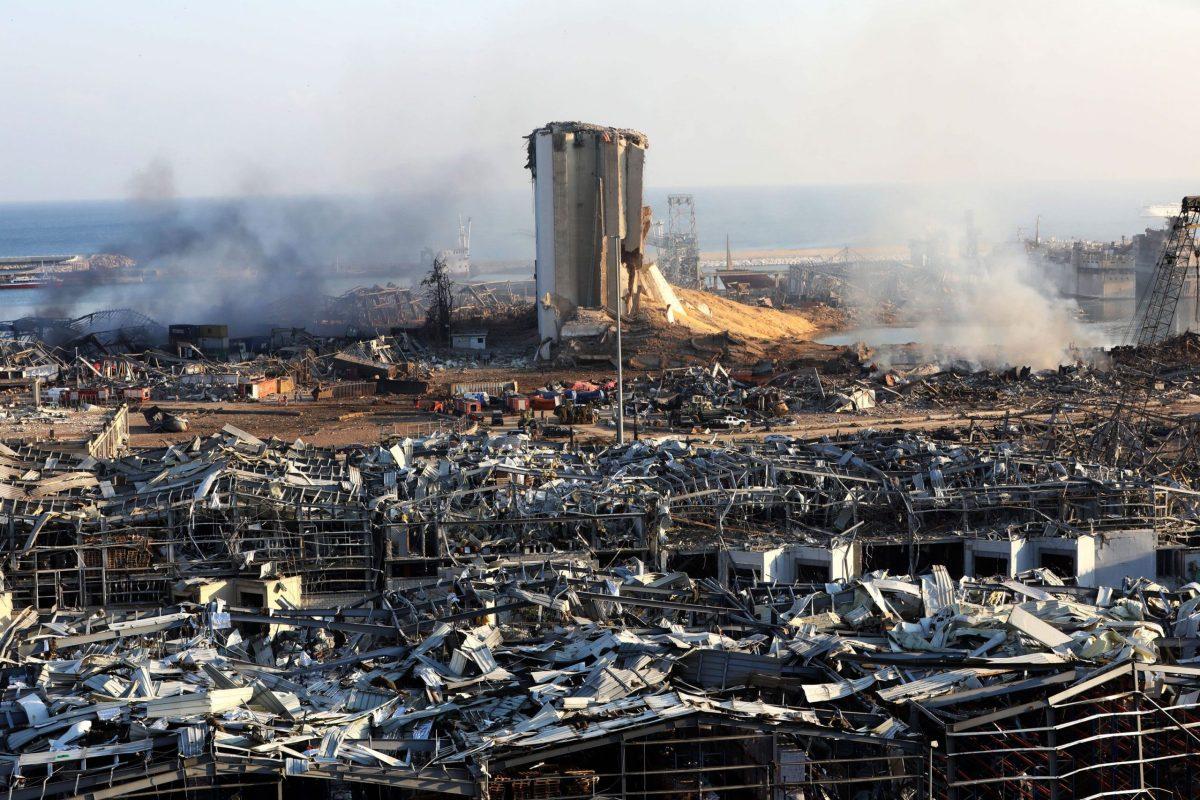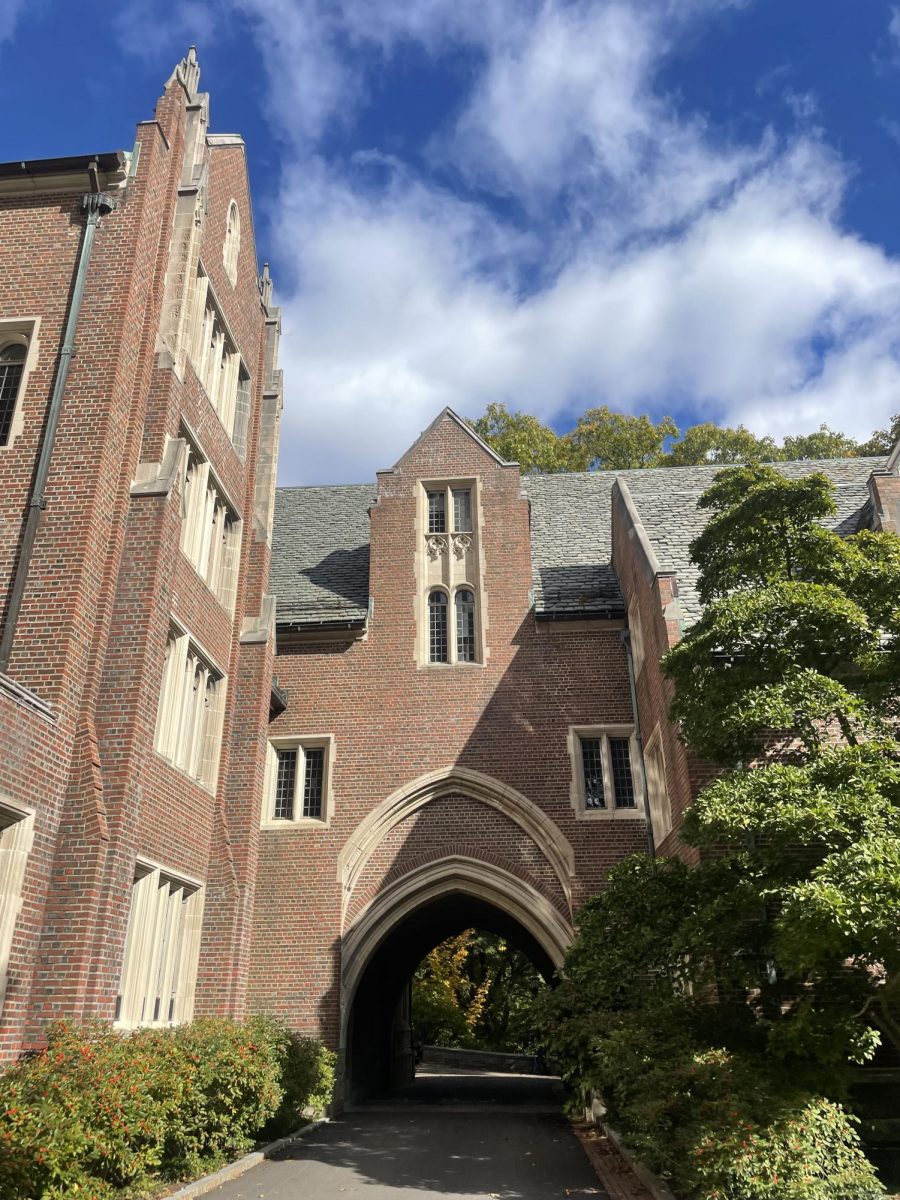On Aug. 4, 2,750 metric tons of improperly stored ammonium nitrate exploded in the port of Beirut, Lebanon. Over 300,000 became homeless, 6,000 injured and more than 180 died in what is now one of the most destructive non-nuclear explosions in human history.
Following the incident, the Wellesley Arab Women Association (WAWA) raised over $10,500 for victims of the explosion, as of Aug. 21. All proceeds were donated directly to the Lebanese Red Cross. To donate, Venmo @Wellesley-WAWA or go to paypal.me/wellesleywawa.
[separator type=”thin”]
This was the first summer Asma Mardini ’22 did not spend in her native country of Lebanon. In the past, her family typically visited friends and family back home during school breaks, but they found themselves barred from returning this year due to COVID-19 travel restrictions.
“[The explosion] affected me psychologically a lot because … I could have been there,” said Mardini, who was in Saudi Arabia at the time and learned about the explosion through social media. “This could have been any of us. It could have been me or any of my direct family members.”
For the first three hours after the explosion, Mardini and her family called friends and loved ones and feared for the worst.
“I called my grandma right when it happened, as soon as I read about [it]. I didn’t know where the explosion happened. I just knew there was one,” Mardini said. “She thought it happened right next to her because of how large the explosion was. We were really scared, and later we found it happened in Beirut, [30 minutes away].”
While Mardini’s grandmother’s house remained relatively unscathed, others within the blast radius were not as fortunate. Property damage alone amounted to over fifteen billion dollars in costs, Lebanese President Michel Aoun announced in a press conference on Aug. 12. The explosion affected important buildings including the country’s main grain silo, three hospitals and the campus of Lebanese University.
According to Mardini, the Lebanese Central Bank had frozen bank accounts throughout the country for “capital control measures” before the explosion, making it difficult for people to retrieve funds to begin rebuilding and exacerbating an already unstable currency crisis; the Lebanese pound, fixed at 1507.5 pounds per US Dollar in 1997, had already lost over 60 percent of its value in the past year.
WAWA decided to take action and begin the fundraiser based “on the sense of urgency that this disaster has provoked,” said Ellie Gibbs ’22, a WAWA general member.
“People in Beirut are very angry at the government and their inaction, and … everything is adding up,” Gibbs said. “Although I have not been directly affected, I see how much it has hurt the Lebanese people. I’ve watched my mom cry about it several times. Some of my cousins and uncles, their homes were impacted by the explosion. Everyone is angry and reasonably so.”
WAWA chose to donate funds to the Lebanese Red Cross because of its affiliation with a larger international organization and independence from the Lebanese government.
“…the Lebanese pound has potential for exploitation,” Mardini said. “Lebanon has faced over thirty years of corruption. There’s other organizations where people are going personally to Lebanon just because they have so much distrust for the government that they want to make sure that everything goes personally to the people.”
As WAWA nears its goal of $15,000, the organization is now shifting towards raising awareness about the explosion and its implications on the region.
“The explosion was significant because it took out a whole country. It’s not just a city; it’s not just a town; it’s not just a village,” a member, who wished to remain anonymous out of concern for political pushback making her unable to return to the region, told The Wellesley News. “People are desensitized to trauma and suffering and terrorism that happens in the Middle East, because it’s not in the Western world and it’s not mainstream. … Everything about us in the West is politicized. Even our deaths have been politicized.”
Gibbs emphasized that this level of tragedy was not typical to the region.
“It was incredibly unexpected. It did a great deal of damage to a population that has been trying to overcome past tragedies,” Gibbs said. “This did not need to occur: it was the result of gross negligence.”
The Wellesley community has been largely receptive to WAWA’s efforts, Gibbs said, with students and alumnae sharing donation links and social media posts en masse. However, WAWA members emphasized that raising temporary awareness would not be enough.
“This was the tip of the iceberg for Lebanon,” Mardini said. “Since October 2019 alone, Lebanon has had a revolution and toppled two governments; [an] economic [collapse] … ; is entering a famine where half of the population is under the poverty line; and people can’t access their life savings. All of this is happening in one year.”
Members of WAWA have also expressed disappointment in the Wellesley administration’s refusal to recognize and raise awareness for the explosions.
“In the end, call it what you want, but people’s lives are lost and it’s not a political thing. We’re standing for the people,” said Anais Amer ’22. “If anyone hesitates to donate [because] they believe it’s political and [won’t] help other humans, it would hurt us so much.”
[separator type=”thin”]
Updated Sep. 6: This article was pulled for revision on Sep. 4; it originally contained the factually incorrect information that the Lebanese Central Bank had frozen assets after the explosion, when the two were unrelated incidents, and Mardini was spelled erroneously as “Mardina”.






